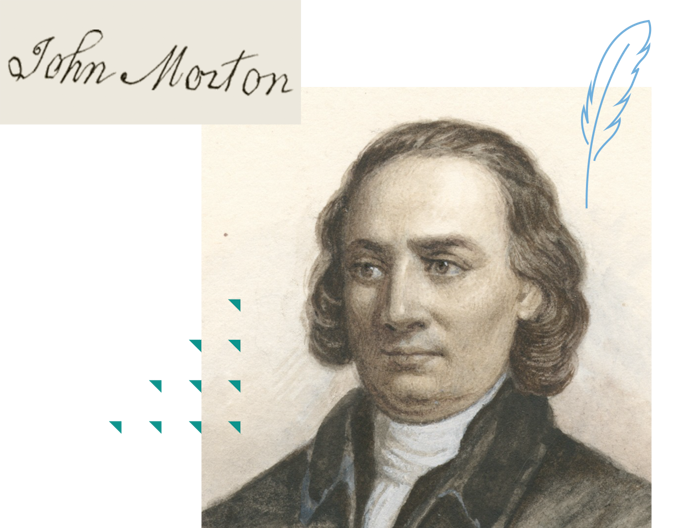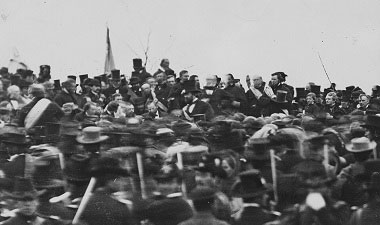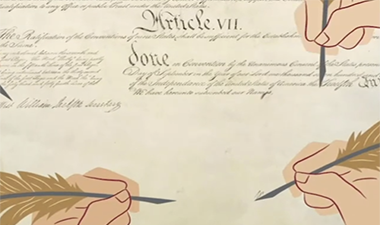Summary
John Morton cast the deciding vote among Pennsylvania delegation at the Second Continental Congress in 1776 in favor of separation.
John Morton | Signer of the Declaration of Independence
2:25
Biography
John Morton had little opportunity to know his father, for John Morton Sr. died the year his namesake was born. His mother remarried an Englishman, John Sketchley, who willingly took on the duty of educating his stepson, teaching him all the skills he needed to become a surveyor, including reading and math. John showed his appreciation later in life by naming one of his own sons Sketchley.
Morton earned the respect of his neighbors by overseeing their books and maps and surveying their property. By 1757, however, he had decided to take up the law as his profession. Although there is no record of him being admitted to the bar, at the age of 31, he became a Justice of the Peace; by 1767, he was the High Sheriff of Chester County. On the eve of the revolution, he was Associate Judge of the Supreme Court of Pennsylvania and presiding officer of the province’s Orphan’s Court.
At the same time that he began his rise within the legal and judicial realms, John Morton entered the political arena as a member of the Pennsylvania Provincial Assembly. From the start, he was a supporter of the growing protests against Britain’s new policies regarding the regulation of American trade and the imposition of new taxes. He served as a delegate to the Stamp Act Congress in 1765, and, in 1769, he was elected speaker of the Provincial Assembly. In 1774, he was sent to represent Pennsylvania in the First Continental Congress.
In 1775, he was again a delegate, this time to the Second Continental Congress. There, the Pennsylvania delegation split over the issue of independence, and it was left to Morton to cast the deciding vote. Although he, like many American political leaders, had earlier hoped for reconciliation with Britain and feared independence would set “Parents against Children, & Children against Parents,” by the time he was asked to cast his vote, he knew that a separation from the Mother Country was necessary. As he wrote to the merchant Thomas Powell in June of 1775, Britain had put “the Halter about our Necks, & we may as well die by the Sword as be hang’d like Rebels.” Thus on July 4, he voted in favor of separation from Britain, and he signed the Declaration of Independence on August 2 with other members of the Congress.
Morton remained in Congress to chair the committee writing the Articles of Confederation, but he did not live to see the country’s first constitution adopted. He died, probably of tuberculosis, on June 18, 1777, at the age of 52, leaving behind his wife Ann and nine children.








